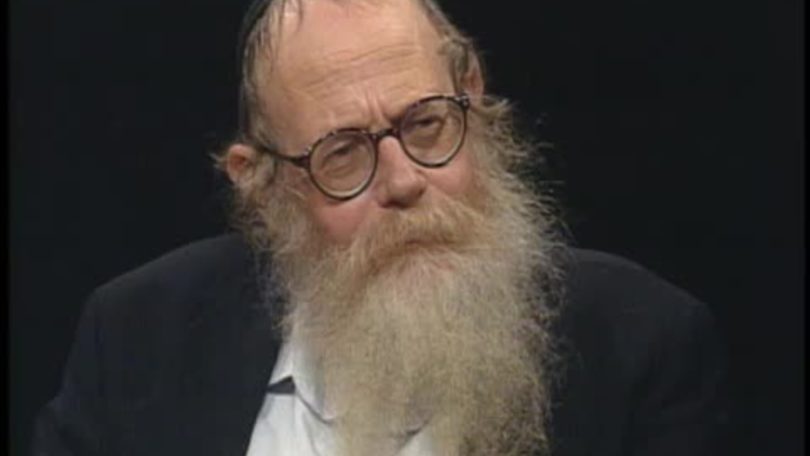Every person is something of a duality.
Every person has two souls, the animal-soul and the Divine Soul.
And one cannot hate the Divine Soul of any man, since it is a part of God.
Because of the complex nature of the relationships within a family, our feelings are often ambivalent.
We harbor all kinds of resentments and display warm affections for the same person.
One can entertain a thorough dislike of certain personality traits and, at the same time, be in love with that person’s essence.
It is not only a simple matter of distinguishing things that are likable or repellent.
Nor is it a matter of having to love, in spite of everything else, as in the relationship between parents and children.
The truth is that love and hate do not necessarily cancel each other out.
They can continue to exist side by side on the same plane.
In certain Chabad texts, it is asked: How is it possible to carry out the mitzvah “Thou shalt love they neighbor as thyself” if the other person is an evildoer and a sinner?
How can one bring oneself to love anyone with whom there is no natural affinity?
The answer given is connected with the words “as thyself.”
Just as one knows one’s own faults and sins better than one knows those of others, one does not hate oneself; so it is necessary to relate to another.
Even when a person hates himself, he continues to love himself also.
As it is written: “Love will cover all your transgressions.”
Of course, love does not really do more to the transgressions than put some sort of veil over them to keep them from being seen.
They cannot usually be made to disappear.
Nevertheless, one’s evaluation. of the same facts can be altered.
Just as one tends to gloss over one’s own transgressions, so one should try to confute the negative reaction to someone else’s transgressions, thereby seeing the other as one sees oneself.
The double-mindedness here is not a matter of hypocritically closing one’s eyes to sin, but rather, seeing it from a different angle-as though it were I who did it and not someone else.
–Rabbi Adin Steinsaltz

